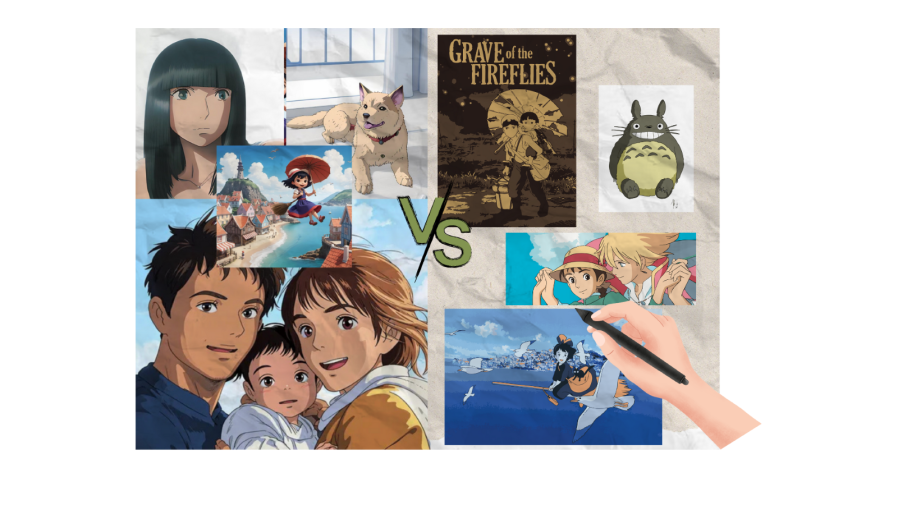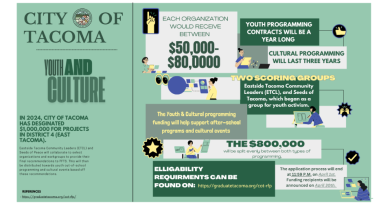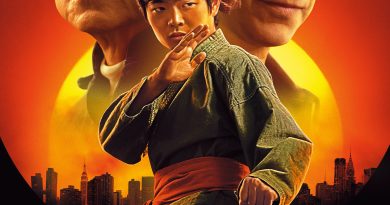Holding the line for human-made art
As AI reshapes media, we’re left to ask whether efficiency is worth the erosion of meaning. Content is easy to make, while culture is something created across generations.
By J.A. Aleman
Quality matters to people, but somewhere along the way, consumers of art in television and films have forgotten that quality has to marinate to be just right.
The world often moves toward convenience, and the rise of AI has been met with more and more favorable eyes. Especially from those who argue it’s faster, and more efficient. Why wait weeks or months for something when AI can pop it out in minutes?
This sounds appealing, but let’s be honest, speed does not necessarily mean art, as true art takes time. If we care about quality, whether it’s in film, writing or design, we have to be willing to wait for it.
“We’re living in a time of instant gratification where people can’t really seem to wait for good art to be made,” said UWT student Mohammed Aldulaimi. “I think it’s a two-sided issue. We’re pressuring people where they might feel they have to resolve to AI to speed up the process.”
This is seen often when a new season of a series ends. Audiences immediately clamor for the next one. Even with all our advancements, good stories still need to grow and evolve to be worth telling. AI can produce content fast, but that content is not special or unique. Do we really want quantity without quality?
The saying, patience is a virtue comes to mind and while this is not new wisdom, the sentiment is appropriate. But whatever the answer to the question, understand that AI merely steals artists’ work when it generates a prompt, as I pointed out in a previous article for The Ledger.
Neil Sahota, AI advisor and author of “Own the A.I. Revolution” wrote in an Forbes article, “The future of filmmaking, shaped by AI, promises to be more efficient, creative and closely attuned to audience preferences.”
Studios, publishers, and magazines for example have always had to follow trends to stay relevant and market their products. But when AI is leading, there is clearly no actual creative voice being heard. What audiences receive is not full of culture or a fresh perspective, it’s just consumable media. Audiences turn into consumers, rather than fans who enjoy art.
Sahota added, “predictive story telling could lead to more successful films that are aligned with audience interests.”
To this I ask, when has predictability ever been a goal when it comes to art?
With any human endeavor comes innovation and with that comes unpredictability. That is how breakthroughs happen in any discipline and anything that is imagined from that will truly stand the test of time.
Take Studio Ghibli as a recent example. The current trend across social media of many turning their images into the studio’s art proves how deeply its films resonate with people. Multiple generations have grown up with this charming art style and heartbeat stories since its first film “Castle in the Sky” (1986).
Even if AI helps with marketing, there’s no guarantee it’ll create something people will remember. There’s no shortcut to making something that lives on across generations, that becomes a household name like Studio Ghibli films and their unforgettable characters.
“It’s polished but it doesn’t have the same soul,” said Dr Jennifer Myers Baran, professor of film studies at UWT. “I feel like everyone wants the easy. Quantity versus quality.”
In a Japan Broadcasting Corporation documentary, Hayao Miyazaki, co-founder of Studio Ghibli, was presented with the idea of AI becoming part of the studios creative process using the words, “beyond human imagination” and that was not received well by the legendary artist.
“I fear the world is near its end. Humans have lost faith in themselves,” Miyazaki said.
As dramatic as his words are, Miyazaki is not wrong in the sense of the world changing and advancing. But we can’t let the human soul pay the price for the sake of profit or speedy production.
Staircase Studios AI is an entertainment company with the goal of telling original stories and according to their website are set to produce 30 or more projects over the next four years. That would be almost comical if it weren’t criminal. Below is a preview of their first project which looks awful.
The studio was founded by Pouya Shahbazian, producer of the Divergent franchise. And working as Head of AI Filmmaking is Brett Stuart, who has a channel showing his work with AI generated short films. Stuart even has a website demonstrating a step-by-step of his process.
Hammering the point home, AI will produce muddled art by taking from all the many voices available online and in the end the product will be a thousand faces molded into one to make a giant mess. With no message, no culture, no soul. Just stolen vision and experiences.






